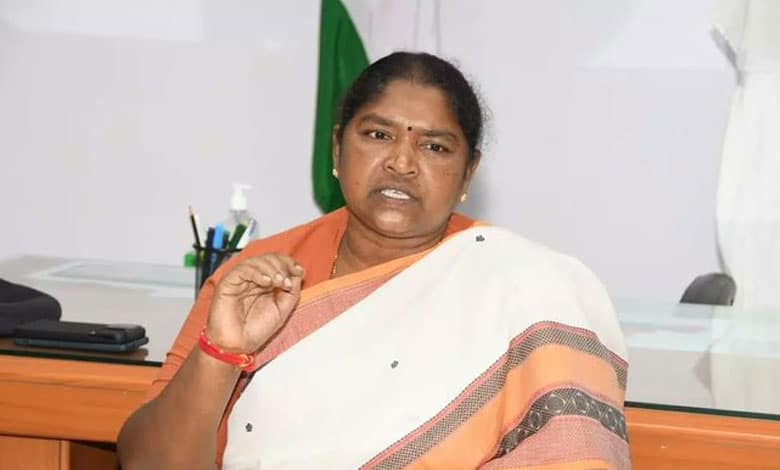Telangana Govt to develop Gurukuls: Seethakka
During a short discussion in the House on infrastructure development in government schools and Gurukuls, the Minister acknowledged the dilapidated state of many Gurukuls and emphasised their importance for marginalised communities.

Hyderabad: Telangana Minister for Panchayat Raj, Rural Development, Rural Water Supply, and Women & Child Welfare, Dr Danasari Anasuya Seethakka, announced in the Assembly on Wednesday that the state government is committed to improving the infrastructure of Gurukuls and government schools to better serve backward classes.
During a short discussion in the House on infrastructure development in government schools and Gurukuls, the Minister acknowledged the dilapidated state of many Gurukuls and emphasised their importance for marginalised communities. She highlighted several key initiatives being undertaken to address these issues.
Dr Seethakka informed that Telangana currently has 3,750 residential schools and 25,840 government schools. The government has increased diet and cosmetic allowances for students, demonstrating its commitment to their welfare.
“As a student from a tribal background, I extend my gratitude to the Chief Minister for these measures,” she said.
Acknowledging incidents of food poisoning in some Gurukuls, the Minister said food safety committees have been formed to prevent such occurrences. She assured that strict action would be taken against officials in cases of negligence. To ensure food quality, the government has introduced kitchen floor maintenance programs and mandated the procurement of high-quality goods.
Highlighting major initiatives, Dr Seethakka announced the establishment of Young India Integrated Campuses and a Young Skill University to promote skill development.
She said that all Gurukuls in the state would eventually be integrated into centralized campuses to enhance administrative efficiency and improve facilities.
This year, the state has sanctioned Rs 2,500 crore for infrastructure improvements in Gurukuls. This funding will be used for critical upgrades, including drinking water facilities, toilet construction, and building repairs. The government has also developed 14,000 schools under the Mana Ooru Mana Badi program, spending Rs 657 crore on the initiative.
To ensure accountability, school-level committees are being formed, and the Amma Adarsh Committees, comprising women’s groups, will oversee the management of Gurukuls. These measures aim to create a more robust and inclusive educational environment for Telangana’s students.
Seethakka emphasised that education was historically limited to certain classes, with many being denied access for generations.
She credited the Congress governments post-independence for introducing reforms to make education accessible to all, including establishing schools, and higher education institutions, and implementing the Right to Education Act during the UPA regime.
She noted that at independence, India’s literacy rate was just 12 percent, which has now risen to 77 percent, attributing this progress to Congress-led initiatives.
Seethakka reflected on historical injustices, such as caste-based discrimination that denied education to lower classes, citing examples like Ekalavya’s sacrifice and oppressive traditions.
She praised the efforts of visionaries like Mahatma Jyotirao Phule, Mahatma Gandhi, Nehru, Dr Ambedkar, and Maulana Abul Kalam Azad, who championed education for all, laying the foundation for today’s inclusive educational system.
Seethakka stressed that education eradicates ignorance, fosters social change, and bridges economic and social gaps. She advocated for the strengthening of government schools to ensure equitable access, asserting that education is a transformative tool for societal progress.
Concluding with a personal note, Seethakka shared her pride in recently completing her LLM from Osmania University, underscoring her belief in the value of education.
